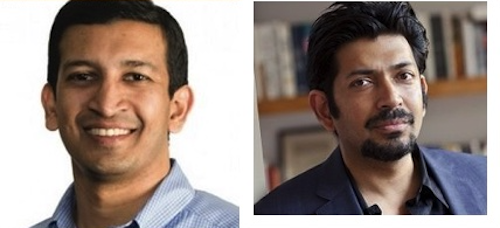UNITED NATIONS (TIP): Two eminent Indian – origin agricultural experts have been named members of an international scientific group, aimed to offer foremost scientific evidence for sustainable food systems, established by UN chief Antonio Guterres ahead of a global food summit next year.
Prof. Rattan Lal of Ohio State University and Dr. Uma Lele of the International Association of Agricultural Economists (IAAE) are among the Scientific Group Members named by Guterres, a statement issued by the UN spokesperson said.
Lal, a preeminent Indian-American soil scientist, was named last month as the 2020 World Food Prize Laureate for developing and mainstreaming a soil-centric approach to increasing food production that conserves natural resources and mitigates climate change.
Lal serves as distinguished university professor of Soil Science and founding Director of the Carbon Management & Sequestration Center at The Ohio State University.
A native of India and citizen of the United States, Lal has in his career of over 50 years and across four continents promoted innovative soil-saving techniques that benefited the livelihoods of more than 500 million smallholder farmers, improved the food and nutritional security of more than two billion people and saved hundreds of millions of hectares of natural tropical ecosystems.
Lele, the first woman to be awarded a Ph. D. in agricultural economics by Cornell University, was elected President Elect of the International Association of Agricultural Economists in July 2018.
According to Lele’s profile on her website, she has five decades of experience in research, operations, policy analysis, and evaluation in the World Bank, universities and international organizations.
Guterres, in collaboration with the United Nations (UN) Rome-based Agencies, will convene the Food Systems Summit in 2021, as a critical contribution to the Decade of Action to deliver the 2030 Agenda and the Sustainable Development Goals (SDGs).
The summit aims to raise global awareness to understand the food systems challenges that nations must solve, build a global conversation on the way in which nations produce, process, and consume food, and galvanize global actions and commitments to change food systems to provide safe, nutritious food for all within the planetary boundaries.
As noted by the Secretary-General in the recent policy brief on the Impact of COVID-19 on food security and nutrition, investment both during and after the coronavirus crisis can accelerate movement toward food systems that are more inclusive and resilient to future pandemics and that offer better protections for all, the UN statement said.
With a view to facilitate this process and its success, Guterres formed a number of support structures. A multi-stakeholder Advisory Committee will provide strategic guidance and feedback on the Summit’s overall development and implementation.
An independent Scientific Group will bring to bear the foremost scientific evidence, and help expand the base of shared knowledge about experiences, approaches, and tools for driving sustainable food systems.
UN Deputy Secretary-General Amina Mohammed will Chair the Advisory Committee, which will comprise Member State representatives as well as senior officials of relevant UN agencies, other international organizations, and individual experts across different sectors, including farmers, indigenous peoples, civil society, researchers, academics, young people, and business leaders.
The Scientific Group will be Chaired by Dr. Joachim von Braun of Bonn University Germany.
